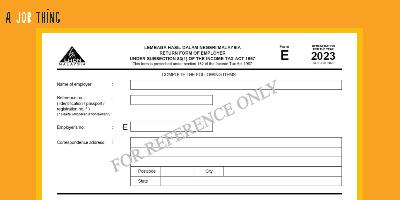
How to Apologise as an Employer
Create Job Description Using AI
Write appealing job descriptions for any job opening to attract the most qualifield and suitable candidates. FOR FREE.
try now
Being a great boss doesn’t mean you have to be perfect, but it does mean you should own up to your mistakes and apologise when you’re in the wrong—even if it’s hard or embarrassing, or the mistake seems insignificant.
Whether you’ve called out an employee for missing a deadline that isn’t actually until next week, miscalculated a sales quote, or were uncharacteristically snappy during the weekly team call, a genuine “I’m sorry” will mean a lot to your employees. It’ll also make you a better, more respected leader in the process.
Here’s how the best bosses apologise, depending on the severity of their mistakes.
Made a Minor Mistake? Send an Email
If you:
- gave an employee the wrong information,
-
missed an important email, or
-
failed to accept their vacation request on time,
a short admission of your mistake via email or messaging app should be acceptable.
Even if you made a very small mistake, show your employees that you care about accountability and getting things right. This is one of the ways you build trust with your employees. If the boss isn't ashamed to say “I’m sorry,” neither should the rest of the team.
Examples
I want to apologise for misplacing your expense report. That was my mistake. Thanks for following up with me on this—I’ve sent it off to finance for immediate approval.
Or
I just realised that I asked you to schedule the new client meeting for the wrong date. That’s on me and I’m sorry. Would you mind rescheduling for next week? I know how hard it can be to get everyone’s calendars synced up, so let me know if you need any help.
If You Notice You're Making A Mistake, Address it Right Away
There will be a time when your memory slips up or you say something that sounds a bit rude. If you catch yourself making a mistake, pause, take a breath, and admit your mistake.
Intercepting these errors as soon as they happen will help to keep them from turning into bigger problems. Letting a harsh comment or an incorrect statement slide can cause resentment among your team, especially if you have a tendency to ignore your mistakes.
Address the mistake, apologise with sincerity, and move on. And the last part is important. You don’t want to extend the conversation by getting preoccupied on the details, that’s just unnecessary and awkward for everyone involved.
Examples
“I apologise, I think I may have gotten that wrong. Can anyone confirm those dates for me?”
Or
“I’m sorry, that didn’t come out the way I wanted it to. Let me try this again.”

Mistakes happen, but don't forget to take the opportunity to make things right and win your employees' hearts.
When Your Actions Affect Someone Specifically, Apologise Personally
Hurt someone's feelings? Missed an important meeting with a particular person? Or jumped to an unfair conclusion about someone?
You'll need to apologise in person. When in doubt, meet with them one-on-one.
Send your employee a calendar invitation or stop by their desk as soon after the event as possible. This may be a short dialogue or could lead to a longer discussion. This is why it's important to put it on the calendar or go into a private conference room in case you need to figure things out.
Either way, be prepared to listen and do not to get defensive if the person chooses to express how your actions made them feel.
Examples
“I wanted to talk to you about the marketing meeting last week. I’m very sorry that I wasn’t there. I know you were counting on me.”
Or:
“Do you have a moment to chat about the Orange project? It was wrong of me to assume that you hadn’t submitted your analysis on time, and I wanted to apologise.”
If You Mess Up in Front of Your Team, Address it in Your Next Meeting
If you’ve wrongly called out an employee in front of the team, you may want to address it the next time you’re all together. This doesn’t need to be a long discussion, but rather a quick acknowledgement before the actual meeting starts.
Address your mistake with the employee (or employees) first. It wouldn’t hurt to ask them if they’d be all right with you correcting your mistake with the team. Most people will be comfortable to be publicly vindicated, but some may prefer to resolve things privately.
Examples
“On last Friday’s meeting, I told Joanne that her numbers were incorrect. That was my mistake, and I owe her an apology. I’m going to mess up sometimes, so when I do, I hope you all feel comfortable talking to me about it.”
Or
“I realised that I wasn’t very patient on our team call yesterday afternoon, so I wanted to apologise. We should all do our best to communicate with each other constructively and respectfully—myself included. So, if I hurt anyone’s feelings, I’m sorry.”
Saying you’re sorry when the moment calls for it will only heighten your reputation as a great leader.
It’ll also make your people feel more comfortable coming to you with concerns as well as taking ownership of their own mistakes. When you present a good example of making a fair and honest apology, your employees are more likely to follow your lead. This will eventually make your team dynamic stronger.
Hiring Giving You a Headache? You've found the solution! Register at AJobThing.com to access our recruitment services.
Source: The Muse
Related articles
Can an Employer Reduce the Salary of a Downgraded Employee?
How to Fire Someone The Best Way in 7 Steps
Fake MC Claims: A Form of Corruption?





